Why I got into the idea of unconditional basic income and how we can go about implementing it
(The following is an edited transcript from my appearance on the Robot Overlordz podcast in 2015 adapted for article form and updated today for 2017. You can read the original unedited transcript and also listen to the show in full here. A big thank you to Mike Johnston and Matt Bolton for the raw transcript and for having me on their show!)
The Origins of My Interest
I've been a redditor for over six years now and am currently a moderator for Reddit's basic income community. I don’t know how much you know about how Reddit works, but it’s nicknamed the “Front Page of the Internet,” and there’s millions of people who use it. Like Steemit, it works off people’s ability to post whatever they want to, and people can vote this content up or down. Stuff that gets voted up can make it to the very front page, and this page is read by millions of people.
Something that made the front page one day in late 2013 was that people don’t seem to understand how quickly technology is advancing. I've always considered myself as someone who is very interested in technology and keep tabs on this myself. But the stuff I learned there, I too was shocked at how quickly we were advancing--the stuff that people just don’t talk about. The thing that got me was the robotic trucks in the Rio Tinto mines; just this idea that we’ve actually reached the point where a whole mining industry is getting rid of the human element and it’s becoming just robots. You’ve got robots mining this stuff, robots transporting it. Soon they’re going to have the trucks going to the actual trains, which are going to transport to the ports. It’s all getting automated.
You can look at the Amazon warehouse robots as another big one. People don’t think about the work that’s going on in these Amazon warehouses, but as soon as you see a simple .gif of these little orange robots moving stuff around from here to there, it’s like “Holy crap!”
So, there was this big reminder on the front page of Reddit about where we’re at technologically, and that got me looking into basic income. So, I started doing a lot of research into that and I found the Basic Income subreddit after also reading Marshall Brain’s Manna.
Marshall Brain founded How Stuff Works. He then went on to write some books. He’s really well-known in the technology and futurology community. He wrote something called Manna. Manna itself is the name of this piece of software in the story that actually automates management itself. We like to think of the jobs that are eliminated as being, say, server jobs, the hard labor jobs, the physical stuff. His twist on this was to show that actually the first thing that could be eliminated is middle management. (he was right)
Let’s say you work at Burger King and instead of having a manager telling you what to do, you just have a piece of software that tells you what to do and it leads you step by step; it really simplifies stuff and allows people to just break these jobs down into very simple elements. Well, as soon as you do this, just as it essentially makes us into machines, it allows actual machines to more easily do it for us, leaving us with less to do, and therefore with less means of trading our labor for income. So what then?
In Manna, you’ve got these buildings set up where--what do you do with people instead of giving them food stamps or housing assistance? You actually just build these giant warehouses for people. They can’t work anywhere and you don’t want to allow them to cause harm or whatever, so you just lock them all up in these giant "projects."
That's one way we could go about this. As jobs are eliminated, what do you do about people who can no longer find work? What are you going to do with growing unemployment? On the negative side, the scenario is this kind of nightmarish dystopia.
Then on the other side, Marshall calls it the "Australia Project", where instead it turns out in Australia they’ve changed things to be more of a resource-based economy. So, instead of dystopia you have people being freed by technology. They’re only limited by the resources themselves. They’re using technology to create abundance. In this alternate existence, instead of a dystopia it’s a utopia.
Those are really our choices, that we can either go down a road towards things getting worse because we refuse to leverage technology for our own good, or we can go down the road of leveraging technology for the good of everybody. So, I think that made a very good point.
Then Marshall also wrote something called Robotic Nation, which goes into how quickly in the real world things are being automated and what we we’re going to do about it. In that, he talks about a basic income. That’s really what got me thinking about it in a different way.
It was at that point I started getting really deep into basic income, reading a lot about it, and I found the subreddit on Reddit and starting posting a lot on there, as well as reading a lot and engaging a lot. I was soon welcomed to be a moderator on the sub. At the time, there were under 2,000 subscribers and that was in late 2013. Since then, we have now reached over 40,000 subscribers. It’s been growing steadily as the conversation about basic income grows. This was also very much kicked off by the initiative in Switzerland.
Switzerland has this really neat ability to engage in direct democracy, and so they can vote on anything they want to, it just requires getting enough signatures. So, for whatever they want, if they can get enough signatures on it, the entire country gets to vote on it. What they decided to do was get together a petition to give everyone in Switzerland a basic income. The suggested amount was a fairly high basic income--as far as US dollars go, about $2,500 USD per month. They got enough signatures and voted on it in June of 2016. I was even there for the big vote. They ended up not voting yes on it, at least this time around, but the very fact an entire country decided to vote on nationwide implementation really kickstarted the global conversation.
So What is Basic Income Really?
A basic income is the idea that every single citizen in a country, although it does vary between countries, gets a certain and same amount. So, let’s say in the US everybody gets $1,000 a month, and that’s rich or poor, and that’s on an individual level, so it’s not going to a household of three--it’s going to every single individual. A similar way of looking at this: there is actually a partial basic income that’s in Alaska. Everyone in Alaska--child, woman, man, everybody--all they have to do is prove that they’re a resident of Alaska, and they then get around $1,000 every year.
This most recent year in 2016, they got $1,022. It’s guaranteed. It’s not like you lose a certain amount of money depending on if you’re working, it’s not that you don’t get it depending on anything else. Everybody gets it. That’s what basic income is: everybody gets a certain amount, and that amount is decided on by the citizens of the country.
The “basic” part of basic income is the idea that it’s not meant to make everybody rich, it’s not about giving everybody $50,000. The amount is meant to give people a floor in which they can cover their basic needs of food, shelter, electricity, internet, phone, etc. So, you cover the basics with the basic income and that allows everybody to earn above that. If you choose not to work, then you’ll earn your basic income. Everybody that does work earns more than that. It actually increases the incentive to work because you get to keep more, whereas right now you get what are called poverty traps through loss of benefits with work.
It’s possible right now for someone not working to earn the exact same amount as someone who is working because you pull the assistance away as you get a job. A basic income means that you don’t take it away as you work, and because of that then everybody who works earns more. So, there’s a greater incentive that way. The fact that you pull money away as people work is actually a big deal. One way of looking at it is to say that the problem isn’t paying people who aren’t working, the problem is pulling assistance away from people as they work.
This idea that there’s a big disincentive to work with a basic income is actually kind of a misunderstanding of the current structure of welfare. With the current welfare system, we actually hire people to make sure that when someone is working, they don’t get extra money. We’re policing to make sure that the money only goes to people who aren’t working. As soon as you work, you no longer get that assistance. People are actually trapped. If they can’t find a job and they also are disallowed from earning extra income, they’re stuck there. You can’t just work a part time job and earn a little bit on top of your assistance. You lose that assistance. So, that’s a big deal as far as work disincentives go and we can actually create far better incentives with basic income through the removal of welfare and its disincentives.
We've Even Already Tested Basic Income
It’s also important to look at evidence. It’s not just about what we think makes sense, so we’ve tested this before. We’ve tested this in the ‘70s, both in the United States and in Canada. In the United States, it was called the American Income Maintenance Experiments, and in Canada it was called the Mincome Program in Manitoba. What these experiments showed is that there was no extreme work disincentive, people didn’t start working less.
Now, there was actually a reduction in hours worked. But what’s interesting is you can’t just look at the number, it requires knowing what actually happened. If you look at primary household male earners, they didn’t really reduce their hours; let’s say they had a 40-hour a week job--they didn’t go down to 39 or 38 hours, or something like that. What they did is between jobs, they spent a longer amount of time looking for the next job. So, that was the reason for the reduction in work hours. Why did they do that? Were they just being lazy and thinking “Oh, I don’t need to get a job because I’ve got minimum income guaranteed?" Or were they looking at this and saying “Hey, I’ve got a minimum income, so I’m going to make sure that the next job I get is the job that I want?”
That’s something that we really want because we know that productivity is higher for people who actually like their jobs. You also want people to get a higher wage job. If you’re not guaranteed anything, you’re more likely to take that $10/hour job you hate versus holding out and waiting for that $20/hour job you like.
This is also something to look at when you look at these findings; it’s very interesting to compare this to paid vacation in other countries, which is the way I like to look at this. In the US, we have no mandatory paid vacation. So, on average, I think it’s around 13 days paid vacation is what we take, and we actually don’t take a lot--we just leave it on the table. With this compared to other countries, you have to take 20+ days of paid vacation.
If you look at this and say “Okay, what if basic income actually caused a reduction of work if it was a work disincentive and people lowered their hours?” Well, saying “What if people reduced their hours 10% and worked 10% less per year?” is the equivalent to countries who force 20 days of paid vacation. So, it’s a way, instead of mandating that people take paid vacations, to have them voluntarily take them.
You saw this too in Manitoba--they reduced their hours but it was mostly among new mothers. It wasn’t that new mothers stopped working, it was that there was no real maternity leave, because we don’t offer that either. These new mothers decided to use their guaranteed minimum incomes to stay at home longer and be new mothers for a longer amount of time before they went back to work. They didn’t drop out of the labor force, they just took an actual maternity leave, which is something like in other countries where you can actually get maternity leave for a year. You don’t see that here. Basic income enables us to voluntarily look like countries elsewhere who force it, where they say “You have to take this amount of vacation or maternity leave.” With basic income we can just say “Well, if you want vacation, you can take it. If you don’t, you don’t.”
How Can We Pay for Basic Income?
Beside the question of work disincentive effects, another big question for people to wrap their heads around with basic income, is “Where will the money come from?” Especially in this day and age, where people seem to hate taxes more and more. Well, it’s very simple to say that we could actually pay for it with a conversion to a flat tax system.
I’m not necessarily saying this is the best way to go about it, but just to show how easily we could do this in a way that’s easy to understand: we could create a flat tax that’s about 40%. That may sound high, but because everyone gets in return this $12,000 a year, the effective tax rate is lower than what it is right now for most people because you’re basically getting a giant tax rebate.
A flat tax set at 40% could pay for basic income and the effect of that would be a reduction in taxes for about 60% to 80% of the population, depending on how many people are in the household and if you’re single, etc. So, the majority of the United States would pay less in taxes. It would be a shift from the bottom 60% to 80% to the top 20% to 10%.
There’s certainly plenty of arguments to be made that we need to do that anyways, that that would reduce inequality by reducing the taxes for most people and by raising them at the top. People would say “Oh my gosh, that’s horrible, that’s impossible.” Maybe it is politically difficult to pass that, but maybe it isn’t. Maybe if 80% of the population gets a tax cut, then that’s enough to pass it. I don’t know. I’d be really interested to see polls asking people what their favorite way is, “Do you prefer this? Would you vote for this as a means of paying for it?” There are numerous ways to go about it.
Another option would be a value-added tax. Again, this could be a partial thing. If you combine a value-added tax with a flat tax, then let’s say you could actually have a flat tax of around 20-30% and then you could have a value-added tax to make up the difference. There’s a good amount of logic behind wanting a value-added tax anyways. This is something that’s actually in most OECD countries now except for the US. We’re the only ones not doing this. It actually helps a lot for exports--you’re able to squeeze out the price of the products and sell them cheaper to other countries by using a value-added tax. It’s also more difficult to evade that tax because it’s consumption tax and because the calculations are made each step along the way.
I look at the ways of funding basic income as kind of a toolkit that we could use anyways. Like, we want a value-added tax, that’s a smart thing to add. So, what kind of level would it be? I think it would make sense to have a flat tax; a lot of people are behind it (62%). It’s just you can’t do that right now because if you did a flat tax without a basic income, then that’s very regressive, it hurts people at the bottom. If you’re going to make these changes, you have to adjust for the people who would be hurt by it. The same way for the value-added tax--you’re going to make stuff more expensive at the bottom and they need to be compensated for it. This is why the FairTax includes a monthly cash "prebate" aspect that is essentially a partial basic income, to compensate for the increased burden on lower income brackets.
There’s other funding methods too. You can look at a Wall Street financial transaction tax, which could raise a lot of money. You could have a land value tax, which may make more sense to do on a local level, such as state by state or city by city. If you look at the pure revenue involved in land value tax, it could raise almost two trillion dollars in revenue.
Also, when you’re looking at how to fund basic income, you are cutting out a lot of these existing programs that you don’t need anymore, especially depending on how high it is. If you have a high enough basic income, then you can eliminate a good amount of social security, a good amount of the current welfare programs, Section 8, food stamps, TANF, all this other assistance, and you could just replace it with cash. Because of all these programs and subsidies we’re actually already giving a lot of a UBI amount per quintile.
In fact, if we look at only those programs within the tax code designed to encourage things like home ownership, retirement, and higher education, the top 5% is already receiving $12,000 or more in the form of tax expenditures.
With the calculations that I’ve done, the cheapest we would need is around $300 billion dollars in additional revenue to fund universal basic income after the full or partial replacement and elimination of existing federal programs made unnecessary by the UBI, and without even touching Medicaid or Medicare which I think should only be replaced by universal health care, not cash.
Alaska also has a lot to teach us about how to go about basic income. They get their dividend money from the oil that they consider to be owned by everybody in Alaska because it’s Alaskan land that this oil is in. A larger funding revenue would be possible by saying “Okay, let’s look at everything owned by everybody or owned by nobody,” so you look at oil, water, wind, minerals, fracking, the electromagnetic spectrum, Big Data, all our commonly owned resources.
There’s also the pricing of stuff higher that we don't want, like pollution--carbon tax would help, since carbon in the air affects everybody you could price it so that it gets more expensive to use. The revenue generated by that would be compensatory. For example, if you make gas prices more expensive, that hurts people at the bottom but we want that because we want to reduce our usage. But since it hurts people at the bottom, you could give them a dividend, a basic income, then they’re no longer hurt by it, just like with the FairTax. We can actually do a lot of these things that can raise money and do stuff that we want to do, like reduce carbon pollution.
The Question of Technology
To me, what it really comes down to is this: What is the job of technology? Who is it supposed to work for? Is it supposed to work for everybody? Is it supposed to work for just a tiny few? What is its purpose? Right now, we’re not leveraging it for everybody.
Back in 2015, there was a big deal about a CNN article about basic income. With CNN’s article, it was funny, looking at the comments when they posted it to Facebook, it seemed like the most popular comment of all was people immediately dismissing it and saying “Give a man a fish, he eats for a day. Teach a man to fish, he eats for a lifetime.”
We look at that and we think “Oh, well that makes sense.” Like, “Of course, we want independence. We don’t want people to be dependent on others. Just teach them self-dependence. If they need a fish, teach them to fish.” It’s completely ignorant of technology though. This is a saying that has existed for thousands of years and it makes sense, but it’s completely devoid of where technology exists today. So, I think a better saying would be "Give a man a fish, he eats for a day. Teach a man to fish, he eats for a lifetime. Build a robot to fish, do all men starve, or do all men eat?"
This cuts down to the question of what technology is for. Tesla and Ford are good examples for seeing the way things used to be and how they are now. Henry Ford required hundreds of thousands of employees, and because of that you had a lot of people getting income from their work for the Ford company. Now you’ve got Elon Musk and the factory that’s set up to build these Tesla cars is heavily automated. It’s amazing to look at, to see all these robots building these cars. You just need fewer employees. You can see a photo of the old Ford motor factory and it’s massive amounts of people. Then you look at a picture of the Tesla employees and it’s a small group of people in a room with robot after robot after robot in the background, all of these machines.
THEN
NOW
Elon Musk owns all of these machines; these machines represent people that no longer need to work. Essentially Henry Ford needed tens of thousands of people to work for him, and Elon Musk is single-handedly equivalent to these same tens of thousands of people. So there’s fewer of these jobs and the income is more concentrated at the top now because it never needed to be given in the form of wages. There’s no more income for people with the jobs that are done by robots. Because of this, you’re seeing this concentration. It’s in business after business. Facebook needs fewer employees, Google needs fewer employees; Instagram, Snap. Uber is a great example too.
These businesses are based off of just connecting people now. It’s not really building an industry using people and employees, it’s just connecting one person to another person. Uber, they’re just connecting people who want to drive people and people who want rides. You don’t need a lot of employees for that. In fact, a lot of these drivers aren’t employees--they’re considered to be subcontractors, they’re independent, they’re freelancers. Because of that, there’s no pension, there’s no unemployment. If they get into a car accident, then it’s on them. It’s a completely different setup. This is part and parcel with our growing inequality, that the technology right now is owned mostly by the 1%. It’s a small fraction of society that gets to accrue all of this extra. Until we figure out a way of doing something about that, things are just going to get worse because we need fewer and fewer employees.
People think that there’s always going to be new jobs but these jobs are different. You just don’t have full-time 40 hours a week, 40-year career jobs any more. Also because of this, as more and more people are no longer required to work, this creates a surplus in the labor market for the labor supply, which has to do with wages going down. You get these jobs that are being created that pay less. They have less hours, there’s less security, and this is the direction that we’re going in. We’re going to keep going in that direction.
How to Change Our Direction
So what can we do? Well, I believe we need basic income. And if you want to help and you want to be a part of the growing movement for it, I would suggest going to the subreddit, and that’s reddit.com/r/basicincome. Start reading the many links and discussions. I’d recommend going to Basicincome.org, which is more of an international source for news and information. You can subscribe to what’s called the newsflash there. Stay informed. If you’re in the US, you can become part of the US Basic Income Guarantee Network at USBIG.net, where you can become a member.
We need people creating and sharing content about basic income. We need people who make videos, images, podcast, etc. We also need people who wants to follow their passion in life, which is what basic income should be about--freeing people to do what they most want to do. If that means creating content that has nothing to do with basic income, like just making videos that you want to make - that’s the direction I think we should be going in. If you're interested, you can go to Patreon.com/ScottSantens and find what I’ve done there. You can even take the pledge yourself, and that’s the BIG Patreon Creator Pledge, which is saying that you want to crowdfund your own basic income as I have and want to help others do the same.
I've also written some tips to help provide some more ideas on how you can help grow the movement for basic income, and if you'd like to go so far as to even organize a local chapter in your area, check out basicincomeaction.org.
And last but not least, start asking yourself, what would you do with a basic income? Because once we start asking ourselves that question, we start seeing the world a bit differently.
What's most important? Time is a limited resource, right? How would you like to spend it?
What will an unconditional basic income free you to do?
Or, to think about that same question from a slightly different perspective...
What are you not doing right now in life, because you don't start each month with enough money to live?
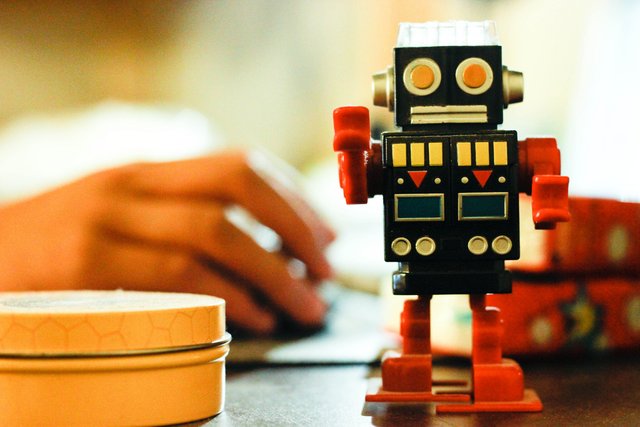
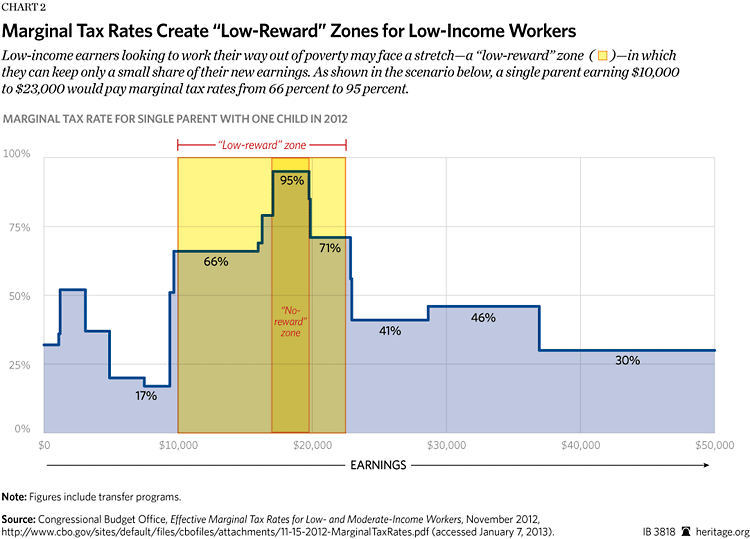
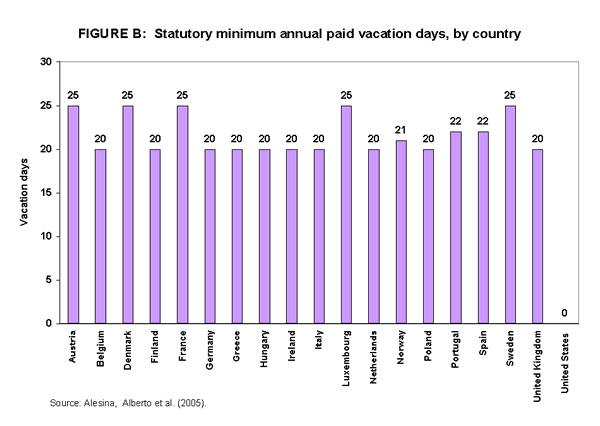
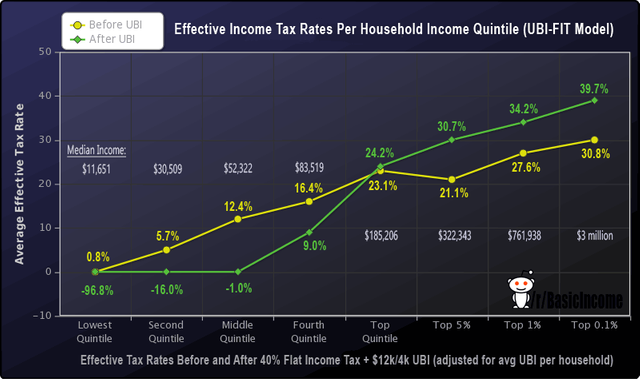
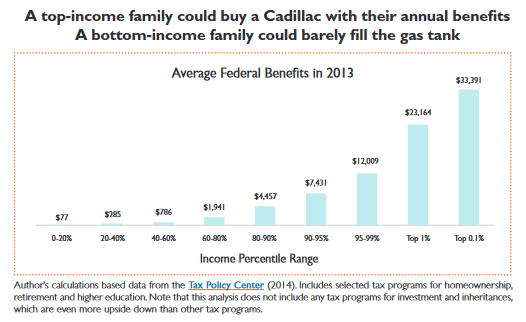
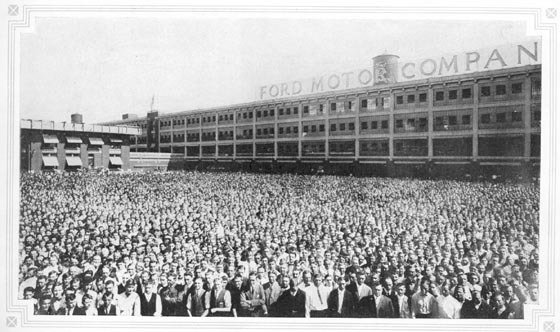
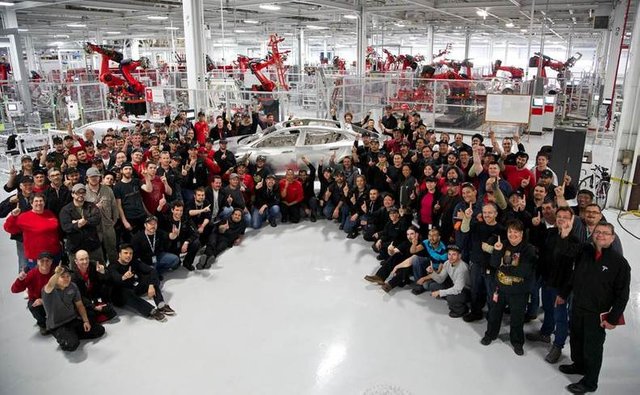
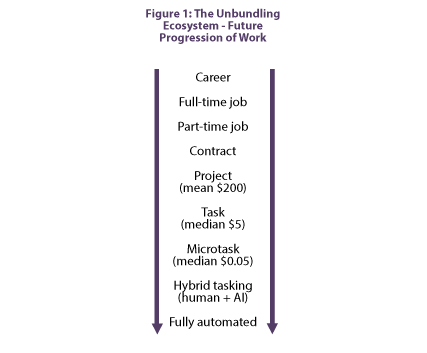
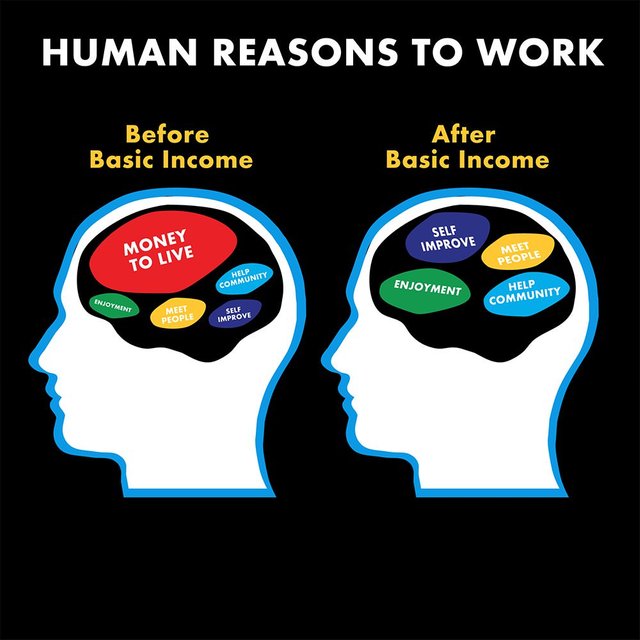
It's a nice idea maybe, but doesn't really account for what will happen during the upcoming worldwide hyperinflation/drought/famine/pandemic/war/robot invasion.
The guaranteed minimum wage cannot survive any serious test from reality.
Our problems right now stem mostly from growing inequality and falling demand. As William Gibson said, the future is already here, it's just not evenly distributed.
Hyperinflation occurs where more and more currency is chasing an insufficient supply. That isn't our problem in the US. We can't even hit our 2% inflation targets for optimal economic growth. Money velocity is slow as hell, and consumers are spending less and less due to having less to spend after basic needs and expenses are covered.
So if inflation is your concern, I suggest reading this to get more deeply into that and all the variables involved.
As for your concerns of a pandemic and robot invasion... I really don't know what to say to those. Personally, I think we should make the world a better place and not sit back and do nothing out of imaginary fears.
The reality is that the automation of human labor has arrived, and it's really important we decouple income from work as a response to that, preferably before the mass unemployment of truck drivers.
you're talking robotic socialism. Socialism necessitated by robots. Freedom will be eliminated, also out of necessity. Anyone who rails against that system, once it is instituted, will be lower than a terrorist. The happy recipients of that guaranteed wage would actually gladly watch opponents of the system be deprived of everything and every right that they have. They would actually be happy to see the opponents of that system hunted down and exterminated - BY ROBOTS. You want to see robots become the beloved guardians of order and peace? Guarantee that anyone can receive a subsistence allowance just as long as they do not create disorder in the system. If they DO get it in their minds that they can rebel, they will be happily CRUSHED by the ruling class + their placated slaves. This is not a good way to go.
This should be filed under #hardforkseries.
Milton Friedman and Friedrich Hayek both advocated basic income. They were both free market capitalists. If you don't know their names, you should. Hayek even felt basic income was important for freedom. If that confuses you, I suggest reading this to learn more:
https://www.libertarianism.org/columns/why-did-hayek-support-basic-income
What I'm talking about is an income floor. A floor, not a ceiling. Think Monopoly. Do you start that game with nothing? No. Why? Because you need money to play the game. You then also get $200 each time you pass Go. Why? Because you need money to play the game. The game is about earning more money, but as the saying goes, you need money to make money.
Basic income is that minimum amount of money required to play the game. All money earned is earned on top of it. If you're earning $5,000 per month right now, and start getting $1,000 in basic income, the most likely thing you're going to do is treat it as a raise.
As technology performs more and labor for us, that also means we can work less. Instead of 40 hours per week being considered full-time, we can see it as 30 hours, or 20 hours, etc. That's how the trend has gone through history, and it only makes sense to continue.
As for the rest of your comment, it really doesn't make much sense to me, and sounds pretty crazy actually. Take care.
we are already in it,
as i drive into the freeway to drive fast from point A to point B , i pay 1 euro to enter
if i dont have i cant enter into the reality of this Robotic grid
Then on the Freeway there are cameras and AI ensuring i maintain speed below 130 km/hr
If i disobey and the AI captures me , i am sent a speeding ticket
All the time AI is educating me to take it easy , drink lot of water ..telling me about traffic
and all the while google maps is misguiding me most of the time lol
Now those who oppose it take national routes where they dont have to pay but they cant go fast .... So in the End AI wants to control human Time experience ...... or we are giving AI the control of our Time experience .... this is an interesting question
Cool story, bro. I think you are confusing reality with a Hollywood movie.. ;)
Such an in-depth post, thank you for all of your thinking here. I've never considered either flat tax nor basic income to be good ideas, but after reading this post I'm much more open to it and agree that both could be very good ideas!
Always good to hear such a response and thanks for sharing it with me in addition to taking the time to read it!
I think Basic Income is an idea whose time has come. Posts like this help people understand what it is, and how it can work. Thanks for this post and all the links.
Cheers to that! That's been my goal for years now, to help people understand what basic income is. My hope is to help all of Steemit better understand it by continuing to post regularly about it here.
this is an amazing post and I'm a new follower! (I saw you from @juliank contest page), I see you have tons of reddit experience too, I never used that page, but need to check it out a bit as I know it's blog based like steemit. basic income is an area I want to keep learning about, peace!
Thanks! Yeah, Reddit is extremely useful and obviously an inspiration for Steemit. I'd like to see this place become a bit more like it, but in ways that improve upon it. I've read that a version of subreddits is in the roadmap here, so that has me excited.
Upvoted and resteemed :)
Thanks! Followed back.
This post has received a 5.56 % upvote from @booster thanks to: @scottsantens.
Basic Minimum wage is the easiest way to bring in Mass slavery by the Technocratic Elite , the real challenge will be to Bring Basic Creative Milestones to this world which is changing rapidly as we speak. Robotics are changing our society but also humanity its changing. I see more and more people go into creative living into arts and permaculture and building a new vision for our future to come . Steemit is i believe the real revolution , this is giving an equal oppurtunity for Humans to share their content and find its value. Its the transition which we all need to get out of problems of economic systems created by Banks . Banks want basic income , thats what they will support. We have to be creative in bringing Steemit to the masses . We have to take the quantum leap from Facebook era ... its time that it goes quielty into the night .